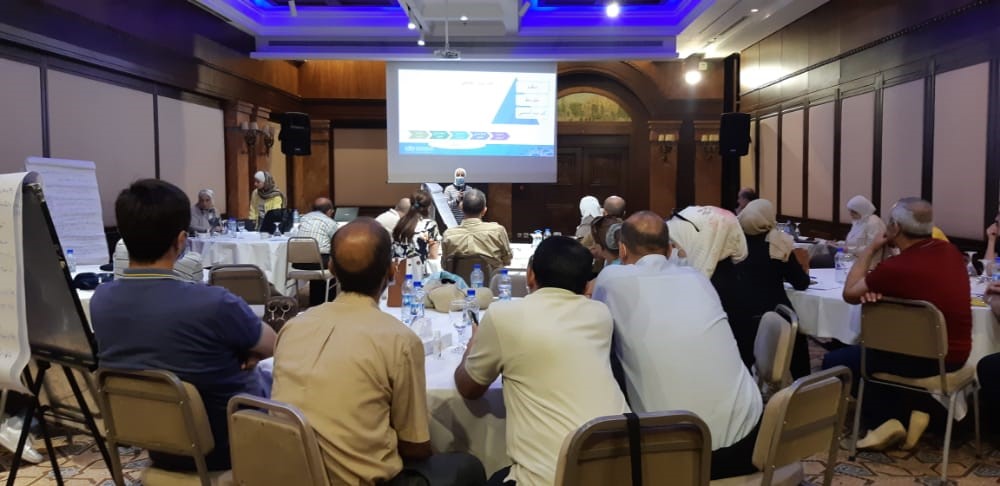 The WHO Regional Office for the Eastern Mediterranean conducted a technical mission to the Syrian Arab Republic with the aim of supporting the country’s preparedness and response capacity to high-threat pathogens. The mission, which took place from 31 July to 9 August, focused on strengthening early detection and rapid response, enhancing rapid response team (RRT) capacity and improving pandemic influenza preparedness (PIP) implementation and influenza surveillance. WHO has been supporting the Syrian health authorities to transition from the Early Warning, Alert and Response System (EWARS) to routine surveillance for sustainability purposes.
The WHO Regional Office for the Eastern Mediterranean conducted a technical mission to the Syrian Arab Republic with the aim of supporting the country’s preparedness and response capacity to high-threat pathogens. The mission, which took place from 31 July to 9 August, focused on strengthening early detection and rapid response, enhancing rapid response team (RRT) capacity and improving pandemic influenza preparedness (PIP) implementation and influenza surveillance. WHO has been supporting the Syrian health authorities to transition from the Early Warning, Alert and Response System (EWARS) to routine surveillance for sustainability purposes.
WHO jointly reviewed with the Ministry of Health the performance of EWARS, as well as its effectiveness and usefulness in detecting, confirming and responding to priority diseases. Field visits were conducted to select EWARS reporting sites and to health directorates where interviews were held with key stakeholders.
Two workshops were held during the mission. The first reviewed the framework for EWARS integration into routine surveillance and updated it with detailed strategic activities to ensure a smooth and effective transition. The workshop was attended by 30 participants from the health directorates of 12 governorates, including the heads of communicable diseases departments, heads of RRTs and EWARS officers in Damascus, Rural Damascus, Hama, Homs, Dar’a, Tartous, Lattakia, As-Swieda, Qunitera, Aleppo, Raqqa, and Idleb, as well as Ministry central surveillance officers from the communicable disease and primary health directorates and a representative from the central public health laboratory.
The second workshop assessed RRT training needs and was also attended by the officials from the 12 governorates. It reviewed RRT performance and assessed levels of competency, skills and knowledge to respond to outbreaks and alerts. During the workshop the team brainstormed on the requirements, modalities and opportunities to develop a sustained and well-structured training programme to address the dynamic public health challenges that keep arising, as well as the high turnover among staff.
The mission succeeded in jointly updating the EWARS integration framework addressing 6 major areas to leverage surveillance and response capacities in the country. It recommended advocating for the endorsement of EWARS integration by the Ministry of Health into the routine surveillance framework. Other recommendations included the development and implementation of an efficient electronic surveillance system and integrating it with the existing platform. Strengthening the link between laboratory diagnostics and confirmation activities and EWARS for early detection and confirmation of outbreaks was also advised.




